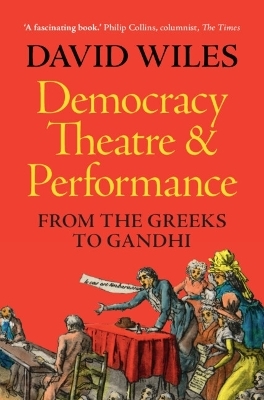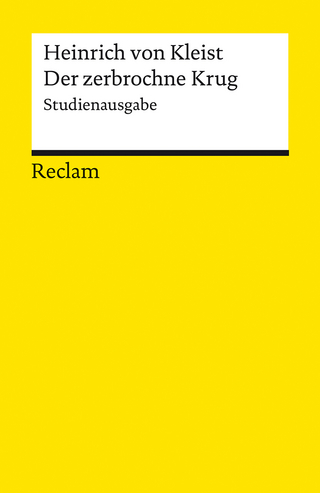
Democracy, Theatre and Performance
From the Greeks to Gandhi
Seiten
2024
Cambridge University Press (Verlag)
978-1-009-16799-4 (ISBN)
Cambridge University Press (Verlag)
978-1-009-16799-4 (ISBN)
David Wiles boldly reframes democracy as a form of theatre, moving from Athens to the English, French, and American revolutions, and to Indian independence, exploring how democracy really works. Engagingly written, his book will reshape thinking for students and general readers in theatre, history and political science alike.
Democracy, argues David Wiles, is actually a form of theatre. In making his case, the author deftly investigates orators at the foundational moments of ancient and modern democracy, demonstrating how their performative skills were used to try to create a better world. People often complain about demagogues, or wish that politicians might be more sincere. But to do good, politicians (paradoxically) must be hypocrites - or actors. Moving from Athens to Indian independence via three great revolutions – in Puritan England, republican France and liberal America – the book opens up larger questions about the nature of democracy. When in the classical past Plato condemned rhetoric, the only alternative he could offer was authoritarianism. Wiles' bold historical study has profound implications for our present: calls for personal authenticity, he suggests, are not an effective way to counter the rise of populism.
Democracy, argues David Wiles, is actually a form of theatre. In making his case, the author deftly investigates orators at the foundational moments of ancient and modern democracy, demonstrating how their performative skills were used to try to create a better world. People often complain about demagogues, or wish that politicians might be more sincere. But to do good, politicians (paradoxically) must be hypocrites - or actors. Moving from Athens to Indian independence via three great revolutions – in Puritan England, republican France and liberal America – the book opens up larger questions about the nature of democracy. When in the classical past Plato condemned rhetoric, the only alternative he could offer was authoritarianism. Wiles' bold historical study has profound implications for our present: calls for personal authenticity, he suggests, are not an effective way to counter the rise of populism.
David Wiles is Emeritus Professor of Drama at the University of Exeter. He has written and edited many books, including Greek Theatre Performance (2000), Theatre and Citizenship (2011), The Players' Advice to Hamlet (2020) and The Cambridge Companion to Theatre History (2013), all published by Cambridge University Press.
1. Introduction: democracy as performance; 2. Rhetoric in Athenian democracy; 3. Acting versus sincerity: Aeschines v. Demosthenes; 4. Puritan democracy: the English Revolution; 5. Oratory in the French revolutionary; 6. American democracy: from the founders to feminism; 7. Democracy as a universal good: Gandhi, Tagore and the new India; 8. Theatrocracy: back to Athens.
| Erscheinungsdatum | 01.05.2024 |
|---|---|
| Zusatzinfo | Worked examples or Exercises |
| Verlagsort | Cambridge |
| Sprache | englisch |
| Maße | 158 x 235 mm |
| Gewicht | 520 g |
| Themenwelt | Literatur ► Lyrik / Dramatik ► Dramatik / Theater |
| Kunst / Musik / Theater ► Theater / Ballett | |
| Geisteswissenschaften | |
| Sozialwissenschaften ► Politik / Verwaltung ► Politische Systeme | |
| ISBN-10 | 1-009-16799-5 / 1009167995 |
| ISBN-13 | 978-1-009-16799-4 / 9781009167994 |
| Zustand | Neuware |
| Haben Sie eine Frage zum Produkt? |
Mehr entdecken
aus dem Bereich
aus dem Bereich
Der Tragödie erster und zweiter Teil. Urfaust
Buch | Hardcover (2021)
C.H.Beck (Verlag)
10,00 €
Kleist, Heinrich von – Deutsch-Lektüre, Deutsche Klassiker der …
Buch | Softcover (2024)
Reclam, Philipp (Verlag)
7,40 €


